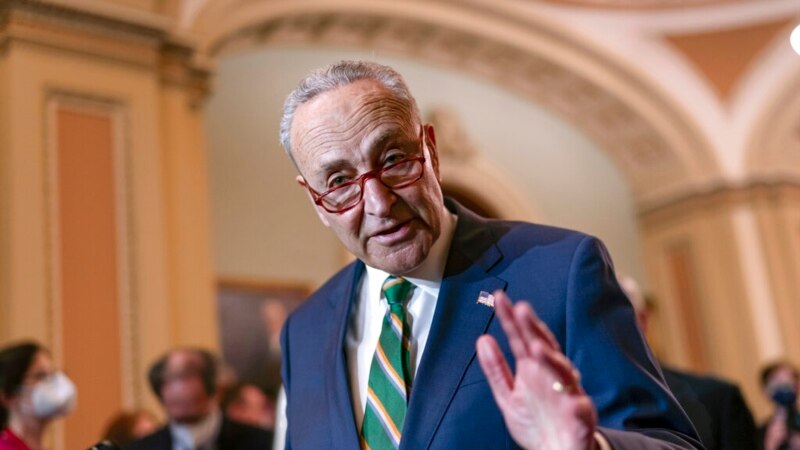President Joe Biden signed legislation Friday to fund the government for an additional week as lawmakers race to finish work on a full-year spending package before they head home for the holidays and a new Congress is sworn in.
Congress in September passed a bill to keep the government running through Friday. The latest extension funds federal agencies through December 23. It passed the Senate on Thursday evening, 71-19.
“Negotiations keep trending in the right direction, but we still have a lot of work left to do and not enough time to do it, unless we extend government funding for another week,” Senate Majority Leader Chuck Schumer, a New York Democrat, said in urging lawmakers to support the stopgap measure.
The roughly $1.7 trillion package being negotiated would finance the day-to-day operations of government agencies for the current fiscal year that began October 1. Federal spending on programs such as Social Security and Medicare is not part of the annual appropriations process and is not included in the package.
House Republicans overwhelmingly have called for a longer-term extension into early next year so they could have a bigger role in setting spending levels for the agencies. Democrats in the House were able to advance the bill with little GOP support earlier this week.
But Senator Mitch McConnell, the top Republican in the Senate, has made the case that passing a full-year spending bill this Congress is better than the alternatives because it ensures a sizable increase in spending for defense.
“If a truly bipartisan full-year bill without poison pills is ready for final Senate passage by late next week, I’ll support it for our armed forces,” McConnell said Wednesday. “Otherwise, we’ll be passing a short-term continuing resolution into the new year.”
Some Senate Republicans disagreed with efforts to pass a spending bill before House Republicans could take charge. Senator Mike Lee of Utah said he supported providing a short-term extension into next year because that would mean “more Republican priorities” in the final package.
Senator Richard Shelby of Alabama, the lead Republican on the Senate Appropriations Committee, had said the two parties were about $25 billion apart on overall spending. But lawmakers announced Tuesday night that they had reached agreement on a “framework” that should allow negotiations to be completed by next week.
The final bill is also expected to include the Biden administration’s request for another $37 billion in aid to Ukraine as well as other bipartisan priorities, including an election measure designed to prevent another January 6 insurrection. The bill would make it more difficult for lawmakers to object to a particular state’s electoral votes and make clear that the constitutional role of the vice president in the proceedings is solely ministerial.

